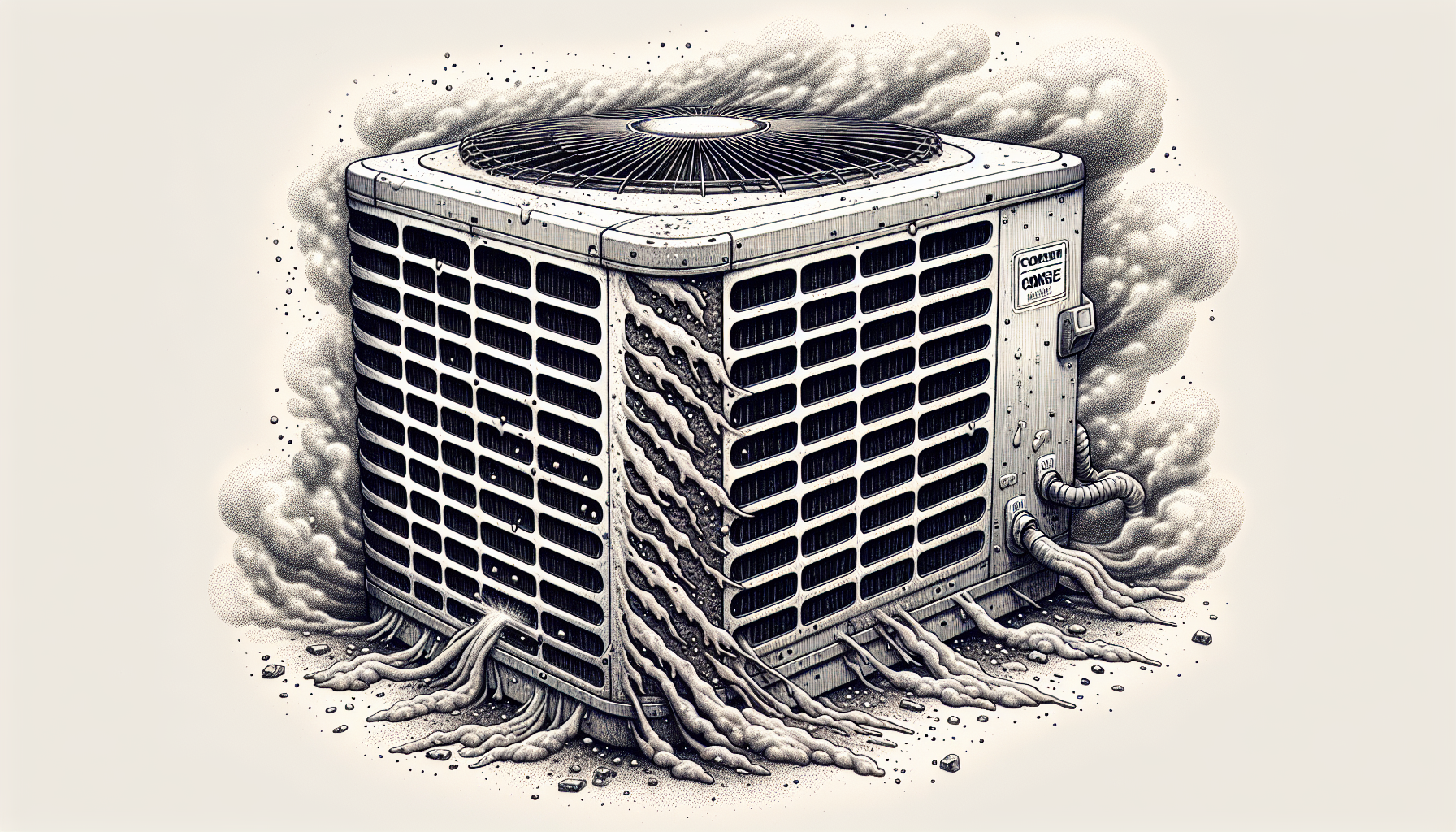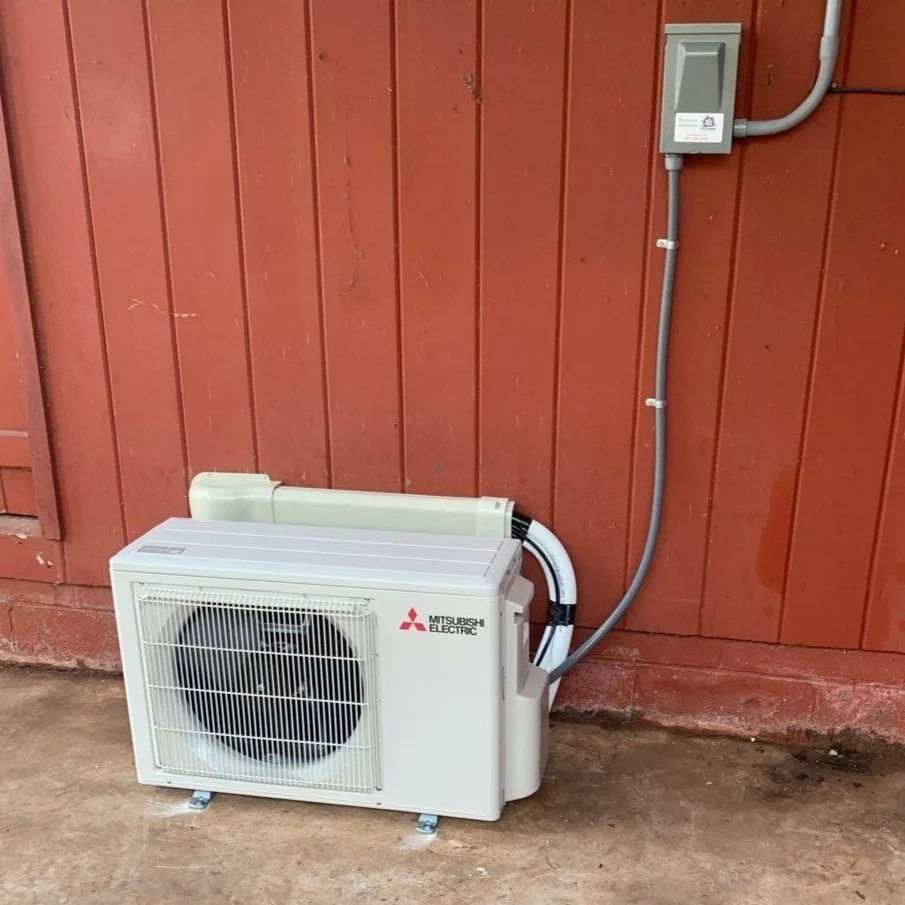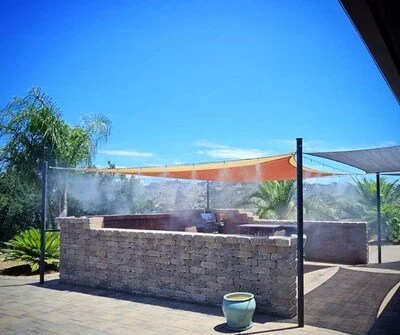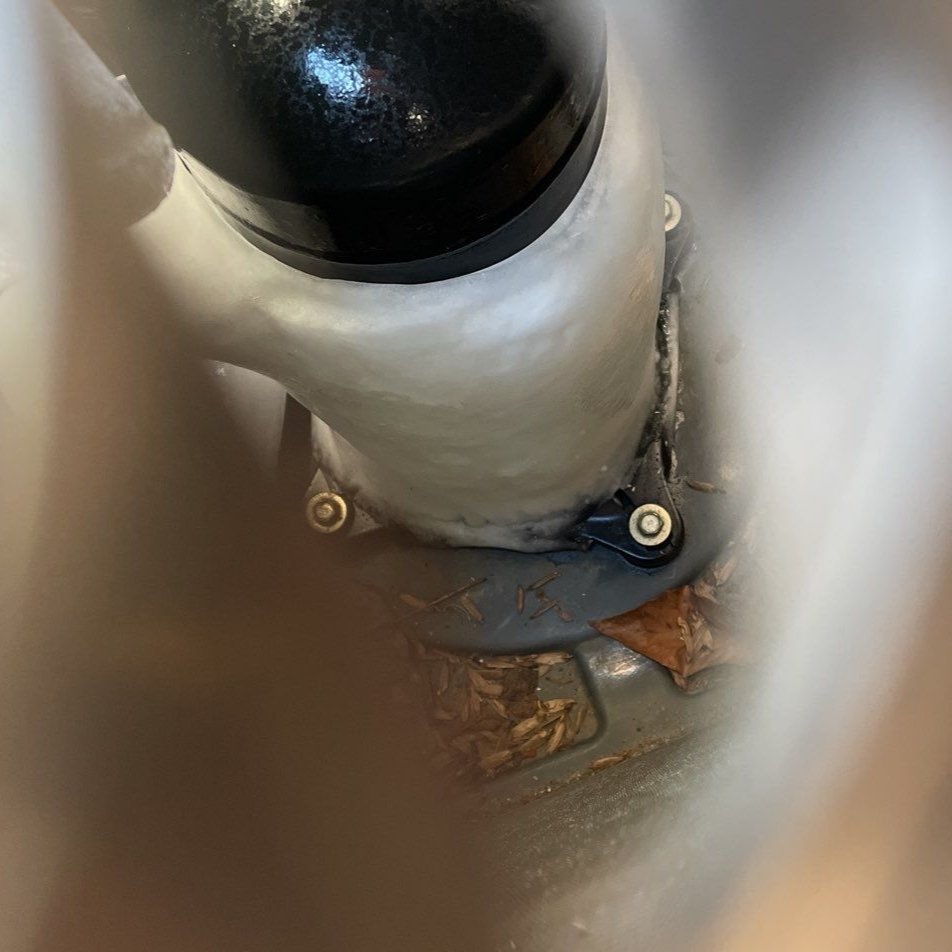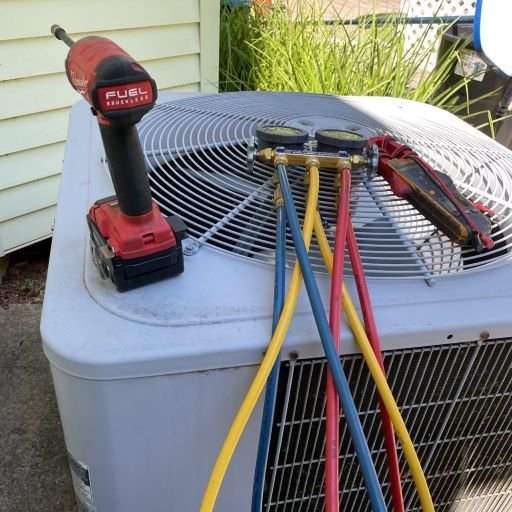How to Fix Frequent Air Conditioner Breakdowns
Are frequent air conditioner breakdowns causing you stress? This guide details “how to fix frequent air conditioner breakdowns” by addressing common AC problems and preventing future malfunctions. Learn straightforward solutions for issues like blocked filters and leaking refrigerant, along with when it’s best to consult a professional. Following these tips will boost your air conditioner’s reliability and efficiency.
Key Takeaways
Regular maintenance, such as cleaning/replacing air filters and inspecting condenser coils, is essential for avoiding frequent air conditioner breakdowns and ensuring efficient performance.
Common air conditioner issues include dirty air filters, refrigerant leaks, and thermostat malfunctions, which can cause insufficient cooling and higher energy bills.
DIY fixes can address simple AC issues, but complex problems like refrigerant leaks or incorrect unit sizing require professional evaluation and repair.
Understanding Common Air Conditioner Problems
Air conditioners are intricate machines and, like any complicated machinery, they can be prone to malfunctions. Some of the most common issues that lead to the dreaded ‘no cool’ situation include dirty filters, refrigerant leaks, and, yes, even thermostat troubles. Each of these problems can cause not just discomfort but also inefficiency, leading to higher energy bills and a strained AC system.
Odd as it may seem, when your air conditioner fails to cool your home, it could be the result of something as simple as a clogged filter, a malfunctioning fan motor, or as complex as a refrigerant leak.
Dirty Filters
Imagine your air conditioner gasping for air, its filters clogged with dust and debris. This is not just a minor inconvenience; a dirty air filter can restrict airflow to the point where it can cause the system to freeze or overheat. Dirty air filters are a primary culprit in HVAC system failures. It’s not just about the immediate discomfort, either. Clogged filters can increase energy consumption by up to 15%, making that next electricity bill a nasty shock.
So, how frequently should you replace your air filters? Conventional wisdom suggests a monthly check, especially during high-use periods like summer. If you’ve got furry pets or live in a dusty area, you might need to change your filters even more frequently. And remember, a clean filter is not just about keeping the cold air flowing; it also contributes to better indoor air quality, ensuring that you’re breathing clean air free from allergens and pollutants.
Refrigerant Leaks
Next, let’s tackle a trickier adversary: refrigerant leaks. These can be sneaky, slowly draining the life from your air conditioning unit without a visible sign until it’s too late. Refrigerant is the lifeblood of your air conditioner, and a leak can significantly impair its ability to cool your home efficiently. The causes of these leaks range from wear and tear to corrosion and physical damage to the unit. And the symptoms? Warm air coming from the vents, ice on the coils, and hissing noises all point to potential refrigerant leaks.
The caveat is that refrigerant leaks are not an easy fix. They require professional tools and expertise to diagnose and repair safely. Improper handling can lead to further damage to the system or even pose health risks. So if you’re adding refrigerant to your system more often than you’re changing your car’s oil, it’s time to call in a pro.
Thermostat Issues
Finally, it’s time to discuss your thermostat, the operation’s command center. When it’s not calibrated correctly or it’s placed in an area with drafts or direct sunlight, it can trick your AC into overworking, leading to increased energy bills and a potentially shorter lifespan for your unit. Connectivity issues with electronic or programmable thermostats can also cause headaches, disrupting communication between the thermostat and the AC system. If you notice your system short-cycling or running non-stop, you might be dealing with a thermostat malfunction.
Thermostat maintenance isn’t as complicated as it may seem. Check the batteries, make sure it’s set to ‘cool’, and clean off any dust that might be interfering with its sensors. A properly functioning thermostat not only saves you money on energy costs but also ensures that your home stays at that just-right temperature, even on the hottest days.
Preventive Maintenance: The Key to Avoiding Frequent Breakdowns
If you want to put an end to the frustration of sudden AC breakdowns, consider the benefits of preventive maintenance. Think of it as your air conditioner’s personal fitness routine, keeping it in top shape to tackle those sweltering summer days. Regular maintenance can save you from the heartache of major breakdowns, the inconvenience of waiting for repairs, and the hit to your wallet from sky-high energy bills. Plus, a well-maintained AC unit runs more efficiently, meaning you’re also doing your bit for the environment by reducing energy consumption.
So what does preventive maintenance entail? It’s more than just a quick dust-off; it includes regular inspections of your system, from the air filters to the condenser coils, and everything in between. This not only ensures that your AC operates at its peak efficiency but also catches potential problems before they turn into full-blown emergencies.
Remember, the ducts also need your attention! Keeping them clean not only helps your AC run smoothly but also improves the airflow and quality of your home.
Cleaning and Replacing Air Filters
Let’s focus on a simple yet impactful maintenance task: attending to your air filters. These unsung heroes play a pivotal role in maintaining airflow, which is crucial for efficient cooling. By cleaning or replacing your air filters regularly, you’re ensuring that your system doesn’t have to work overtime to push air through a dirty filter, which in turn helps you avoid higher energy bills. It’s a small, cost-effective task that can make a world of difference in the performance and longevity of your HVAC system.
Consider this: a clean air filter provides your AC with an unobstructed path to function optimally. The benefits don’t stop at efficiency; clean filters also mean cleaner air circulating through your home, which is especially important for those with allergies or respiratory issues. The frequency of replacements can vary, but it’s a good rule of thumb to check your filters every month and replace them as needed, particularly during seasons of heavy use.
Inspecting and Cleaning Condenser Coils
Caring for your condenser coils and evaporator coils is another essential part of maintenance. These components are where your AC dumps the heat from inside your home, and if they’re dirty, that heat transfer becomes much less efficient. This inefficiency leads to one thing: higher utility bills.
Cleaning the condenser coils might sound daunting, but it’s a straightforward process that involves:
Turning off the power
Removing debris
Vacuuming dust
Giving them a good rinse
Don’t forget to straighten any bent fins with a fin comb, as this can also improve the efficiency of your air conditioning unit. Regularly inspecting and cleaning your condenser coils is a proactive step that can prevent unnecessary stress on your system, helping to avoid costly repairs down the line.
Checking Refrigerant Levels
The cooling ability of your AC heavily relies on the correct refrigerant levels. It’s not just about the quantity, though; it’s about maintaining the right balance for optimal performance. Regular maintenance ensures that your system isn’t operating with low refrigerant levels, which can put a strain on your AC and lead to inefficiency and potential breakdowns. Checking refrigerant levels is a bit more technical and usually requires an HVAC professional who can use a manifold gauge set to take accurate pressure readings.
But don’t let that intimidate you; being vigilant and keeping an eye on your AC’s performance can alert you to potential refrigerant issues before they become serious problems. By ensuring that any leaks are sealed and the system is charged correctly during routine tune-ups, you’re maximizing your air conditioner’s potential to keep you cool and comfortable.
DIY Fixes for Common AC Issues
At times, the solution to your AC problems can be a straightforward fix that doesn’t require an HVAC degree. Whether it’s a tripped breaker or a clogged drain, a little know-how can go a long way in avoiding a sweaty disaster. Before you make that emergency call to a technician, why not try a few troubleshooting steps first? You might surprise yourself with your handiness—and save some cash in the process.
Resetting Circuit Breakers
Picture this scenario: you return home to find it hotter inside than outside, with your AC unit ominously silent. Before you panic, check your circuit breaker. A tripped breaker is a common and easily fixable issue. Just follow these steps:
Turn off the AC unit and the thermostat.
Flip the breaker back on.
Give it a minute.
Turn your system back on and set your desired temperature.
If all goes well, you’ll be back to cooling off in no time.
However, if the breaker trips again, it’s time to pause and call in a professional. Continuously resetting a breaker without addressing the underlying issue can be dangerous and could lead to more significant problems with your electrical system.
Adjusting Thermostat Settings
Next, we will focus on the thermostat. Sometimes the problem isn’t with the AC unit itself, but with how you’re telling it to behave. Incorrect settings can cause your system to run inefficiently, or not at all. The fix could be as simple as making sure your thermostat is set to cool and adjust the temperature to a comfortable level. Remember, setting the thermostat to a colder temperature won’t cool your home any faster and can lead to unnecessary energy consumption.
To maximize comfort and save on energy bills, follow the recommendations of Energy Star: set different temperatures for when you’re at home, away, or asleep. For instance, on a hot summer day, the ideal thermostat setting is between 70-78°F. And if you’re stepping out, bumping it up to 85-88°F can help reduce cooling costs without turning your home into a sauna. Plus, using the ‘auto’ setting can help your system run more efficiently, only kicking in when needed.
Clearing Drain Line Clogs
A clogged drain line is another frequent problem that homeowners can usually handle themselves. If your AC’s drain pan is overflowing, it’s a sign that the condensate drain might be blocked. This can lead to water damage and affect your system’s efficiency. Clearing a clogged drainage pipe can be as simple as using a wet/dry vacuum to suck out the obstruction or gently flushing the line with water.
However, if you’re not comfortable doing this or if the problem persists, don’t hesitate to call a professional. Sometimes, clogs can be stubborn, or there could be other underlying drainage issues at play. It’s always better to err on the side of caution when water is involved, as unchecked leaks can lead to bigger, more expensive problems down the road.
When to Call a Professional
Even with your best efforts, there are situations where AC problems exceed the bounds of DIY solutions. Recognizing when to call in a professional can save you time, and money, and the risk of causing further damage to your system.
In cases of complex electrical issues, refrigerant leaks, and problems with system sizing and installation, it’s wise to seek professional assistance.
Complex Electrical Problems
Electrical issues can be particularly tricky and dangerous. If you’ve tried resetting your circuit breaker and the problem persists, or if you notice erratic behavior from your AC unit, it’s time to call a professional. Electrical problems can stem from a variety of sources, including a bad capacitor or a burnt contractor, and they’re not something you want to tinker with unless you have the right expertise.
Furthermore, ignoring signs of electrical trouble, like exposed wiring or frequent breaker trips, can lead to more severe damage and even pose safety risks.
Refrigerant Leak Repair
Refrigerant leaks are another area where professional intervention is crucial. Not only are there environmental regulations to consider, but handling refrigerant also requires specialized tools and training.
If you suspect a leak—indicated by hissing noises, ice on the coils, or simply a lack of cool air—it’s essential to get a technician to check it out. They can safely repair the leak and recharge your system, ensuring it runs efficiently and doesn’t cause further damage.
System Sizing and Installation Issues
Lastly, when it comes to system sizing and installation, the stakes are high. An incorrectly sized AC won’t just lead to discomfort; it can also result in increased wear and tear, leading to premature failure. If your system is cycling on and off more frequently than it should, or you notice consistent warm spots throughout your home, these could be signs that your air conditioner is not properly sized for your space. Faulty installation can lead to a host of problems, from leaky ducts to low airflow, so it’s worth getting a professional assessment to ensure your system is installed correctly.
In some cases, homeowners may find that a new AC unit isn’t performing as expected. This could be due to incorrect sizing or installation. Before you endure a season of subpar cooling, consult with a professional to evaluate the system’s size and installation quality. It’s crucial to address these issues early on to avoid overworking your unit and to ensure your home remains a sanctuary of cool, even during the hottest days.
The Benefits of Regular AC Tune-Ups
Just as regular oil changes are crucial for your car’s performance, your air conditioner also needs frequent tune-ups to ensure smooth operation. The benefits of routine maintenance on your AC unit include:
Improved energy efficiency
Enhanced cooling performance
Extended lifespan for your unit
Catching issues before they turn into costly problems
Ensuring that your system is running as efficiently as possible
These tune-ups are important for preventing breakdowns and keeping your air conditioner in top shape.
Furthermore, during these tune-ups, technicians can provide helpful tips for optimizing your system’s performance and maintaining it in between their visits. Some companies even offer service contracts that include seasonal tune-ups, discounts on repairs, and priority service, which can add significant value and peace of mind. For example, companies like Advanced Air offer annual maintenance plans including complimentary tune-ups and repair discounts, which could result in substantial savings over time.
Improved Energy Efficiency
Regular maintenance is crucial for your AC unit to perform optimally. When an AC system is well-maintained, the components work more efficiently, leading to lower energy consumption and reduced utility bills. A unit with a dirty filter or condenser coils, for example, has to work harder to cool your home, which can lead to a significant increase in energy usage—as much as 15% according to the US Department of Energy. By addressing these issues during regular tune-ups, you can ensure that your system isn’t wasting energy and is instead cooling your home as effectively as possible.
Furthermore, optimizing your AC system’s performance doesn’t just save you money; it also has a positive impact on the environment. Lower energy consumption means less strain on power plants and reduced greenhouse gas emissions, making regular maintenance a responsible choice for the planet as well.
Enhanced Cooling Performance
For comfort during the sweltering summer months, you’ll want your AC running as efficiently as possible. Regular tune-ups ensure just that by keeping all the components of your air conditioning system in check. These maintenance sessions can spot issues that may impede cooling performance, such as restricted airflow due to a dirty filter or other obstructions.
By addressing these issues early on, you can enjoy consistent and powerful cooling performance when you need it most.
Extended Unit Lifespan
How well you maintain your AC unit significantly impacts its lifespan. Regular tune-ups can add years to your system’s life by ensuring that it runs at peak efficiency and by preventing the wear and tear that can lead to premature failure. Some key maintenance tasks to consider include:
Cleaning or replacing filters regularly
Lubricating moving parts to reduce friction
Clearing dust and debris from the system
Checking and tightening electrical connections
Inspecting and cleaning the condenser coils
By performing these routine maintenance tasks, you can help extend the lifespan of your AC unit and keep it running smoothly for years to come.
By catching and fixing minor issues before they escalate, you can avoid the need for an early replacement—a win for both your comfort and your wallet.
Summary
As we’ve explored, keeping your air conditioner in top condition isn’t just about comfort—it’s about cost savings, efficiency, and longevity. From understanding common problems to learning when to tackle a fix yourself or call a professional, this guide has armed you with the knowledge to keep your cool all summer long. Regular maintenance is the thread that weaves through all these tips, underscoring its importance in preventing those frustrating breakdowns.
So, take control of your home’s climate by keeping your AC well-maintained. Remember to clean or replace your air filters regularly, keep an eye on refrigerant levels, and schedule those all-important AC tune-ups. With these proactive steps, you can ensure that your air conditioner will be there for you during the heatwaves, working efficiently and effectively to keep your space comfortable. And when in doubt, never hesitate to call the professionals to handle complex issues safely and correctly. Stay cool, and take pride in your newfound AC expertise!
Frequently Asked Questions
Why does my AC stop working every summer?
Your AC may stop working every summer because of dirt and debris buildup on the air filter, which prevents airflow and causes the system to overwork and potentially overheat. Regularly changing the air filter can help prevent these issues.
How do you fix a common air conditioner problem?
To fix a common air conditioner problem, you can try the following DIY AC troubleshooting tips: check for a dirty air filter, thermostat settings, circuit breakers, outdoor unit, and air vents. Checking these components can help you identify and resolve issues with your AC.
What are the signs of a refrigerant leak in my AC?
If you notice warm air from the vents, ice buildup on the coils, or hissing noises, it could indicate a refrigerant leak in your AC unit, requiring professional assistance. Watch out for these signs to address the issue promptly and keep your system running efficiently.
How can I tell if my AC unit is the correct size for my home?
If your AC unit cycles frequently or there are warm spots in your home, it may be incorrectly sized. Consulting with a professional can help ensure proper sizing and installation for optimal performance.
What are the benefits of an annual AC maintenance plan?
An annual AC maintenance plan offers complimentary tune-ups, repair discounts, and efficient operation, which saves money and extends the system's lifespan.

